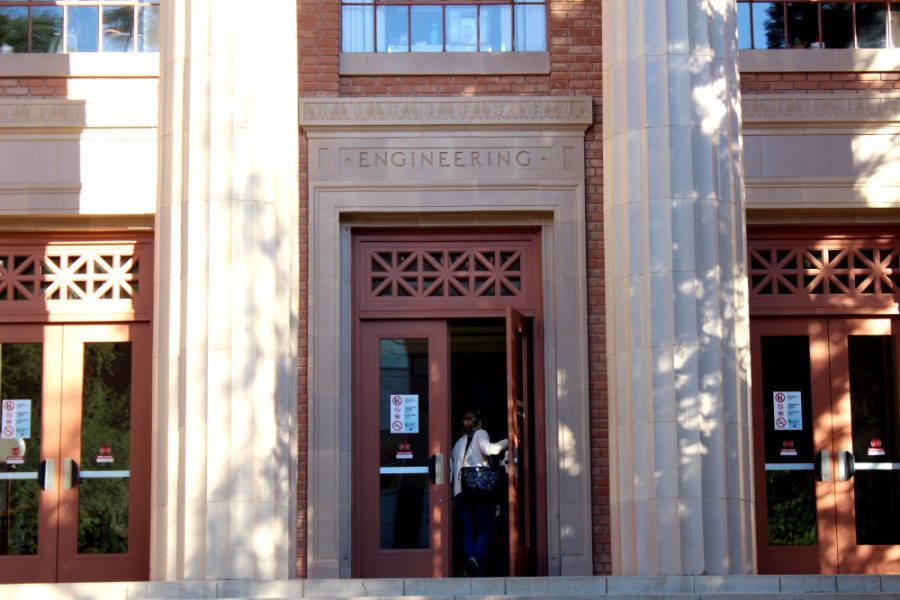Respected surgical oncologist Dr. William Cance, M.D., recently joined the University of Arizona Cancer Center as deputy director in conjunction with UA’s partnership with Dignity Health St. Joseph’s Hospital and Medical Center. Cance will oversee the work in Phoenix and ensure the partnership goes smoothly.
“We felt that the whole was greater than the sum of the parts,” Cance said. “Dignity lacked an academic partner and the University of Arizona Cancer Center lacked a hospital partner here in Phoenix.”
Cance said Dignity Health is the fifth largest health system in the country and will be UA’s hospital partner in Phoenix. UACC has locations in Tucson and Phoenix.
With Phoenix being the largest metropolitan area in Arizona, it made sense to bring the academics of a designated National Cancer Institute Comprehensive Cancer Center together with a large established healthcare system like Dignity, Cance said.
“Our hope was to bring what’s happening here scientifically at the University of Arizona to Phoenix,” said Dr. Andrew Kraft, M.D., director of the UA Cancer Center.
 In order to do that, the UACC needed someone to be in Phoenix full-time overseeing the partnership. Cance was an excellent fit to do that, according to Kraft.
In order to do that, the UACC needed someone to be in Phoenix full-time overseeing the partnership. Cance was an excellent fit to do that, according to Kraft.
“He’s had leadership experience not only in terms of surgery, but also in terms of an NCI-designated cancer center, which was important,” Kraft said.
Cance was previously head of surgery at Roswell Park Cancer Institute in Buffalo, New York, Kraft said. He also runs a research lab that’s funded by the NCI, focusing on developing new and novel drugs. Some of his goals as deputy director include focusing on cancer prevention, precision targeted therapies and treating physical defects associated with cancer treatment, according to Cance.
“Over 70 percent of the patients who undergo cancer treatment have some sort of physical defects and we need to look at that as part of our survivorship, to help people with that,” Cance said.
Cance also hopes to expand clinical trials to a wide variety of patients in order to provide the best and latest drugs to the widest group possible.
“The main value of Dignity Health System is called ‘Human Kindness,’” Cance said. “They walk the talk at Dignity and that’s a great fit with cancer programs, because we’re dealing with people who have had a life-changing diagnosis and they need lots of human kindness. All patients deserve to be treated by an NCI-designated Comprehensive Cancer Center.”
Thanks to the hard work of Kraft, the UACC was designated a National Cancer Institute Comprehensive Cancer Center this September. In order to receive the designation, a facility must meet criteria set by the National Cancer Institute, according to Cance. Some of the criteria include having interdisciplinary research in cancer across areas such as basic science, population health and translational science. Cance also that a facility also needs to serve the population where it is located.
Because the UACC had already missed its NCI Comprehensive Cancer Center grant renewal twice due to lack of permanent leadership, Kraft was faced with a seemingly impossible deadline.
“I had to pull the UA Cancer Center together in one year, something you’d normally only do over five years,” Kraft said.
The grant itself, which is $17 million of federal money, follows a rigorous renewal process every four and a quarter years, Kraft said. As the only NCI Comprehensive Cancer Center in the state of Arizona, the UACC has the ability to provide patients with new drug therapies, advanced care and state-of-the-art treatment.
The recent accomplishments in areas such as cancer prevention, drug development and imaging are too numerous to cite, Kraft said. Some of these efforts include a grant from the Breast Cancer Research Foundation focused on outreach to the Latina community and a program centered on melanoma research.
“I think growing a cancer center and making an impact on the cancer problem is a big team effort,” Kraft said. “We need the population of Arizona, including the students, to step forward and do their part.”
RELATED: UA professors receive grant for breast cancer research for Latinas
RELATED: UA Cancer Center celebrates 40 years
Follow Hannah Dahl on Twitter.








